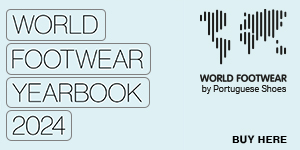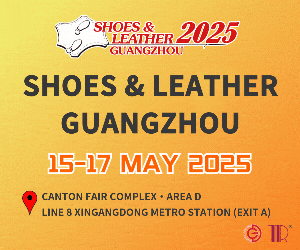The ability to attract foreign investment is key for the footwear industry in Nicaragua

Once considered the “rising star” of the world’s footwear production, the country still needs to be able to develop infrastructures and attract investment
The analysis is made by PRONicaragua, the Official Investment and Export Promotion Agency of the Government of Nicaragua. According to this entity, the country's footwear industry "has grown rapidly due to advantages such as "the strategic location in the center of the Americas with access to both oceans, preferential access to the key international markets, one of the most competitive cost structures in the region, generous investment incentives, and high levels of citizen security". Nicaragua’s Free Zone regime is a tool used to promote investment and exports and export-oriented companies can establish under this regime to obtain incentives.
In 2012 the country reached its highest historical figure in terms of footwear export with the amount of 37.5 million US dollars. According to a study by the FDRA (Footwear Distributors and Retailers of America), which considered Nicaragua as the “rising star” of the world’s footwear production, "the country is especially competitive for the production of women leather heels".
The industry's main products are cattle and goat leather loafers and high heels and synthetic sandals, and the main export destination markets are neighbours Costa Rica and Panama, and the United States. An industry with a total production of approximately 1.5 million pairs per year and 2 000 jobs.
The industry presented a huge dynamic growth in exports between 2010 and 2011 (+450%) when Brazilian footwear manufacturing company Schmidt Irmãos expanded to Nicaragua and established itself in the country with the name SCA Footwear under the free zone regime and employed around 3 000 people in only 2 years of operations. They produced for brands GEOX and Brown Shoes. The company had to close operations in 2012 due to the European crisis which reduced the demand of their products in their main market, which caused a drop on footwear exports of 66% from 2012 to 2013. In 2011 and 2012, Nicaragua’s footwear industry was fortified by the investments of Tecshoes Latin America, a Brazilian footwear manufacturer with a production of 5 500 pairs per day and a labor force of 1 200 (producing for Clarks, for example), and Dikamar (a Venezuelan company with 65 employees focusing on rubber boots for outdoor and industrial activities).
According to PRONicaragua, the industrialization of footwear in the country “started in 2010, with the establishment of the Brazilian manufacturing giant Schmidt Irmãos; before, this industry was mainly artisanal”. According to the same source “one of the main challenges of the country’s footwear industry is to be able to continue the industrialization of this growing industry in the country by continue to build the necessary infrastructures and capacitate the human labor force for these types of processes. Also, another challenge is to continue to attract footwear manufacturing companies into the country to ensure continuous growth and increase the country’s footwear export offer”.
In 2012 the country reached its highest historical figure in terms of footwear export with the amount of 37.5 million US dollars. According to a study by the FDRA (Footwear Distributors and Retailers of America), which considered Nicaragua as the “rising star” of the world’s footwear production, "the country is especially competitive for the production of women leather heels".
The industry's main products are cattle and goat leather loafers and high heels and synthetic sandals, and the main export destination markets are neighbours Costa Rica and Panama, and the United States. An industry with a total production of approximately 1.5 million pairs per year and 2 000 jobs.
The industry presented a huge dynamic growth in exports between 2010 and 2011 (+450%) when Brazilian footwear manufacturing company Schmidt Irmãos expanded to Nicaragua and established itself in the country with the name SCA Footwear under the free zone regime and employed around 3 000 people in only 2 years of operations. They produced for brands GEOX and Brown Shoes. The company had to close operations in 2012 due to the European crisis which reduced the demand of their products in their main market, which caused a drop on footwear exports of 66% from 2012 to 2013. In 2011 and 2012, Nicaragua’s footwear industry was fortified by the investments of Tecshoes Latin America, a Brazilian footwear manufacturer with a production of 5 500 pairs per day and a labor force of 1 200 (producing for Clarks, for example), and Dikamar (a Venezuelan company with 65 employees focusing on rubber boots for outdoor and industrial activities).
According to PRONicaragua, the industrialization of footwear in the country “started in 2010, with the establishment of the Brazilian manufacturing giant Schmidt Irmãos; before, this industry was mainly artisanal”. According to the same source “one of the main challenges of the country’s footwear industry is to be able to continue the industrialization of this growing industry in the country by continue to build the necessary infrastructures and capacitate the human labor force for these types of processes. Also, another challenge is to continue to attract footwear manufacturing companies into the country to ensure continuous growth and increase the country’s footwear export offer”.












